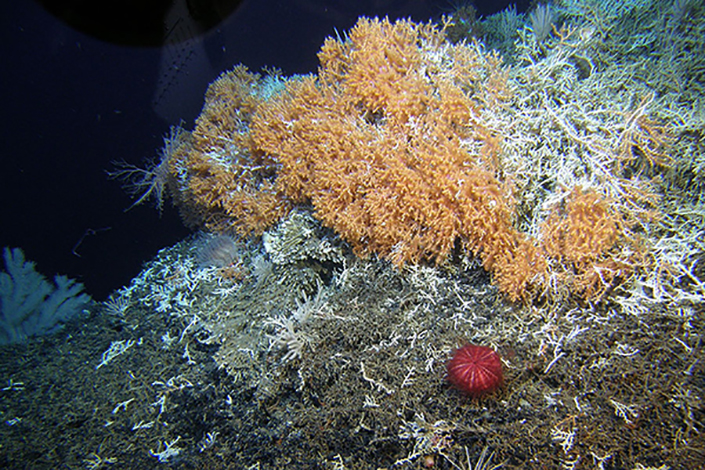Depleted seamounts are recovering near Hawaii, new evidence suggests

For decades, overfishing and trawling devastated parts of an underwater mountain range in the Pacific Ocean near Hawaii, wrecking deep-sea corals and destroying much of their ecological community.
But now, after years of federally mandated protection, scientists see signs that this once ecologically fertile area known as the Hawaiian-Emperor Seamount Chain is making a comeback.
The research team that discovered the evidence of recovery was led by Brendan Roark, associate professor in the Department of Geography at Texas A&M University; Amy Baco-Taylor, Florida State University associate professor of oceanography; and Florida State doctoral student Nicole Morgan. The research was funded by NSF’s Division of Ocean Sciences and involved four research cruises out to the central and north Pacific Ocean to investigate the ecological communities of the region.
Because of the slow-growing nature of the corals and sponges that live on seamounts, “It’s been hypothesized that these areas, if they’ve been trawled, that there’s not much hope for them,” Baco-Taylor said.
“So, we explored these sites fully expecting to not find any sign of recovery,” she said. “But we were surprised to find evidence that some species are starting to come back to these areas.”
The researchers published their findings in Science Advances. The overall understanding that a trawled seamount could recover is a game-changer in terms of fishing management.
“This is a high-impact paper that bears directly on fishery management issues in the Northwest Hawaiian Islands and is timely relative to some changes the current administration is thinking about with respect to opening up marine monuments for more fishing,” Roark said.
Scientists and policymakers regularly debate whether protected areas could be reopened for fishing.
“This is a good story of how long-term protection allows for recovery of vulnerable species,” Baco-Taylor said.

